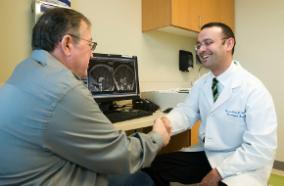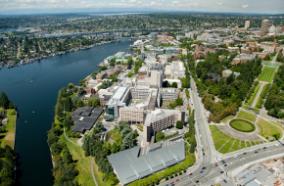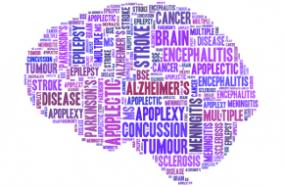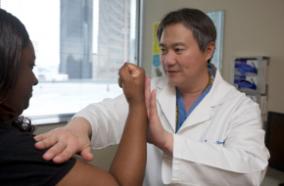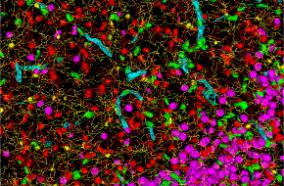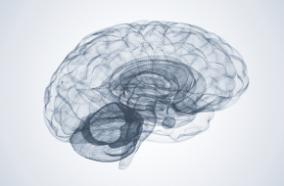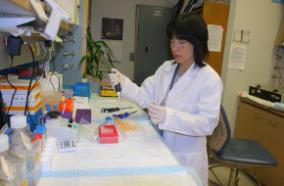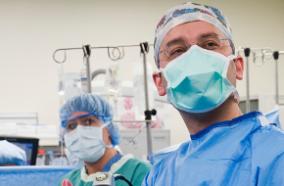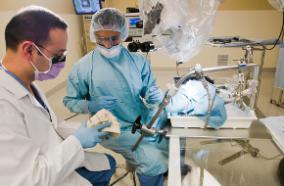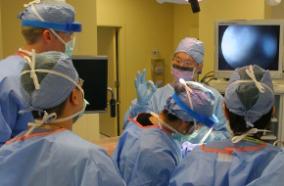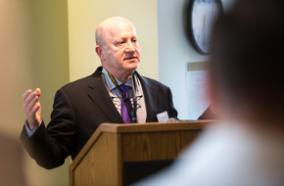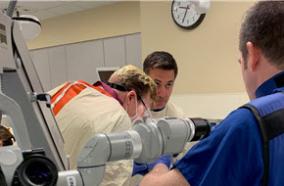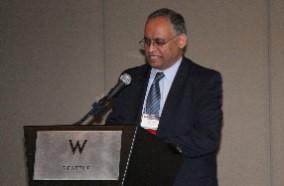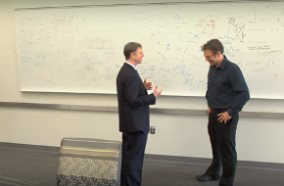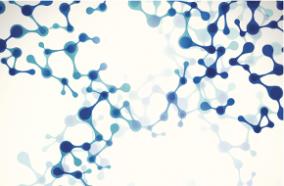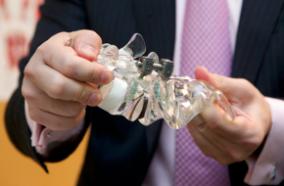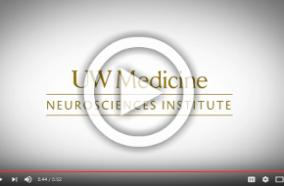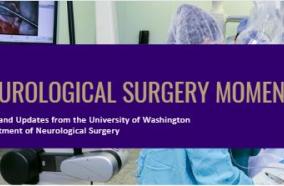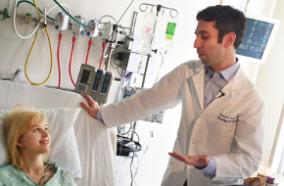The UW Neurological Surgery residency is a seven year program. The American Board of Neurological Surgery (ABNS) Primary Examination is taken for self-assessment beginning in the R2 year. Residents are encouraged to take the exam for credit during their research year. Ultimately, a passing grade for credit is required for graduation and board certification.
The program consists of the following experience:
R-1: Internship Year
-
16 weeks of dedicated Neuroscience education
-
20 weeks of Neurosurgery (at Harborview Medical Center and UW Medical Center)
-
12 weeks of Neurosurgical Intensive Care (NICU), including Neuro Anesthesia
-
4 weeks of Neuropathology
-
4 weeks of Gamma Knife
During this R-1 year, the resident is under the supervision and educational guidance of Program Director and Chairman, Richard G. Ellenbogen, MD, as well as neurosurgical faculty. It is during this year that the formal mentorship process begins. Residents are required to attend Grand Rounds and Resident Education hour, and encouraged to attend all resident meetings and get-togethers (as rotations permit).
R-2: Junior Resident
-
4 months of Trauma/Spine service at Harborview Medical Center
-
4 month of Cerebrovascular/Elective service at Harborview Medical Center
-
4 months of service at University of Washington Medical Center
At HMC, the Program is divided into two services: 1) Trauma /Spine service and 2) Vascular/Elective service (aneurysms, brain tumors, epilepsy, radiosurgery and deep brain stimulation). The resident will assist in running each of the two clinical services with the aid and mentoring of the Chief Resident and faculty assigned to each service.
At UWMC, the resident cares for patients with primary and metastatic brain tumors, pituitary tumors, skull base abnormalities, medically intractable epilepsy with brain mapping, complex spinal pathologies including spinal cord tumors, peripheral nerve lesions, and complex pain and spasticity problems. The rotation at UWMC is unique in that residents receive mentoring by each faculty member at UWMC on an individual basis for each surgical procedure and outpatient encounter.
During this period, the R-2 gains tremendous experience in the operative and non-operative management of head and spinal cord trauma, as well as intracranial hemorrhage of all etiologies. The resident learns the management and evaluation skills required to correctly assess and triage patients arriving in a busy emergency department. The R-2’s interpersonal skills are honed under stressful situations, and their knowledge base grows exponentially through daily interaction with the Chief Resident and faculty.
The R-2 year is a carefully mentored/supervised year in the operating room and in the clinics. The foundation for the six areas of ACGME endorsed competency is laid out so that basic technical skills, neuroscience knowledge, judgment and professionalism are fostered.
R-3: Harborview Medical Center/ Seattle Children's/ Veteran's Administration Resident
-
4 months of Trauma/Spine service at Harborview Medical Center
-
4 months of Endovascular/Neuroradiology service at Harborview Medical Center
-
4 months of Pediatric Neurological Surgery at Seattle Children's Hospital
During the HMC experience as a Senior-Junior resident, R-3's spend most of their time in the operating room, learning elective and trauma spine cases, crash craniotomies, and other intermediate neurosurgical procedures. The R-3 at HMC supervises the intern and R-2 on the service as well.
The last four months are spent at Seattle Children's on the pediatric neurosurgery service. In addition to managing the busy clinical service and supervising four nurse practitioners, the R-3 operates four-to-five days per week. The resident is responsible for the administration of the service, and reports to the full-time faculty members at Seattle Children's. The full spectrum of pediatric neurosurgery is encountered on this rotation, including brain and spinal cord tumors, surgical epilepsy, spinal dysraphism, vascular malformations, spasticity, craniofacial abnormalities, neonatal hemorrhage, hydrocephalus, trauma, spine deformities, and other congenital malformations.
R-4 & R-5: Research and Elective
-
12 Months Research - Lab Location Varies
The R-4 year is devoted to research and the investigative process. In the interest of establishing a worthwhile research endeavor, each resident meets with Professor Jeff Ojemann, Director of Research in the Department of Neurological Surgery to review their research interests and goals. A research committee consisting of basic scientists and clinical investigators is also available as a resource. The resident then receives approval for his/her research program from Dr. Ojemann.
The goal is for the resident to develop the skills to be an independent investigator in any scientific field applicable to neurosurgery. The program encourages residents to advance our field by solving problems that affect our patients in a methodical and scientifically sound fashion. The resident is supported throughout their research by dedicated basic scientists, funded clinical investigators, and/or neurosurgery faculty mentors who review their proposals in detail and provide guidance. As part of their academic training, residents are encouraged to apply for various research awards and grants, present their work at local, national, and international meetings, and prepare manuscripts on clinical and research work.
During the R-5 year, the University of Washington program encourages residents to explore their subspecialty interests in academic medicine. To accommodate each resident’s interests and working under the continuously evolving requirements from the ACGME, our department offers elective rotations. Residents work with the Program Director to design an additional six months of research, an elective rotation in Neuroradiology/Spine/Skull Base Surgery, and/or an enfolded fellowship, etc.
R-6: Junior Chief Resident
-
4 months of Trauma at Harborview Medical Center
-
4 months of Chief’s service (Skull Base, Tumor, Functional, Epilepsy) at Harborview Medical Center
-
4 months of Neurological Surgery service at the University of Washington Medical Center
Each resident has twelve months of mandatory elective clinical time. With the advent of the ACGME guidelines, this elective time has taken on a more formal structure. This year remains a very rich clinical experience with extensive operating duties. The goal is to add subspecialty skill in trauma, tumor, epilepsy and spine. It exists for the R-6 to gain new skills in areas such as spine instrumentation, brain mapping, skull base anatomy, and trauma surgery/management.
As the Junior Chief Resident at HMC, the resident has major responsibilities in running not only the Trauma/Spine service, but covering the Chief Resident of the Vascular/Elective Service when they are off call. During this time, the Spine/Trauma Chief Resident will often be involved in the surgical care of vascular (aneurysm and AVM) and tumor patients, as well as spine and trauma patients. The administrative and training duties during this four-month period include mentoring the junior resident in the proper inpatient and emergency room care of patients with spine fractures and intracranial hematoma/injury.
A second four-month elective is a unique training experience as the Junior Chief at UWMC. This is performed at the discretion of the UWMC Service Chief and Program Director. The rotation may include training focused on any of the following: skull base surgery, neuro-interventional radiology, neuro-oncology, minimally invasive spine procedures, pain procedures, and surgical epilepsy. During this rotation, the UWMC Junior Chief spends time in the Skull Base Laboratory refining their anatomical and surgical skills in preparation for the skull base and vascular neurosurgery rotation as a Chief Resident.
The last four months are spent at Harborview Medical Center as Junior Chief Resident on the "Chief’s Service". The Chief's service at HMC includes exposure to epilepsy, minimally invasive brain surgery, meningioma/pituitary surgery, and congenital adult neurosurgery.
R-7: Chief Resident
-
4 months of Trauma/Spine service at Harborview Medical Center
-
4 months of Neurological Surgery service at the University of Washington Medical Center
-
4 months of Cerebrovascular service at Harborview Medical Center
The residency culminates in the R-7 year, as each resident serves twelve months as the Chief Resident on HMC and UWMC services. The Chief Resident is responsible for coordinating the operative schedule, mentoring junior residents, and supervising the clinical activities on the respective Neurological Surgery services. The R-7 is responsible for all inpatient care, emergency care, consultations, surgical admissions and operations of the respective services.
At the end of each four-month rotation, the R-7 is expected to develop the advanced psychomotor and mature interpersonal skills necessary to manage the broad spectrum of patient diseases cared for at each hospital. Specifically, the R-7 will be capable of evaluating and managing patients with the entire spectrum of brain tumors, epileptic foci, skull base lesions, aneurysms, vascular malformations, extracranial vascular disease, movement disorders, intracranial hematoma, traumatic brain and spine injury, infections, congenital anomalies, hydrocephalus, surgically correctable pain issues, peripheral nerve problems, and spine fractures/diseases/deformities.

